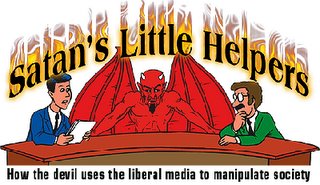
With the 2004 election, we began to hear more and more about communion and politicians who support abortion. Several bishops from around the country made headlines when they either refused, or stated that they would refuse communion to any politician who proclaims them self “pro-choice” while still nominally maintaining that they are Catholic. This became an almost weekly news event, especially when certain high profile Catholic politicians attended Mass, and reporters waited to see if that politician would be denied communion.
Lets make one point absolutely clear in the terminology in vogue in regard to abortion. When a politician, or any other ordinary citizen states that he or she is “pro-choice” or supports “reproductive rights”, they are proclaiming themselves PRO- ABORTION. No nice little clean terms like “pro-choice” or “reproductive rights” hides that fact nor changes it, and hopefully the American people are not blind to that fact. The pro-abortion faction is also adamant in insisting that a bishop or priest denying them communion crosses the line on the so called “separation of church and state”, which is another term thrown at random by anyone who opposes anything the Church teaches. Although those people are hard pressed to show where this is supposedly contained in the United States Constitution. They are hard pressed because it does not exist anywhere within the Constitution.
The hue and cry over this began when Pope Benedict XVI, when he was still known as Cardinal Ratzinger, head of the Congregation for the Doctrine of the Faith, sent a letter to American Bishops entitled “"Worthiness to Receive Holy Communion, General Principles". Stated in "General Principles," no Catholic should seek to receive Holy Communion if he or she is guilty of "a grave sin," and abortion is a grave sin. Further, he wrote that a priest "may find himself in the situation where he must refuse to distribute Holy Communion to someone, such as in cases of declared excommunication, a declared interdict, or an obstinate persistence in manifest grave sin,”. (An interdict, which can only be imposed by a bishop, bars a Catholic from receiving any of the Sacraments, including Holy Communion.) Banning communion is not limited to those who perform abortion Cardinal Ratzinger also wrote that it included anyone "whose personal cooperation becomes manifest," including "the case of a Catholic politician consistently campaigning and voting for permissive abortion and euthanasia laws. The pastor should meet him, instructing him about the Church's teaching, informing him that he is not to present himself for Holy Communion until he brings to an end the objective situation of the sin, and warning him that he will otherwise be denied the Holy Eucharist."
In the end, any politician who campaigns or votes in a manner that is pro-abortion effectively excludes himself or herself from receiving Holy Communion. Further, any Catholic who votes for any pro-abortion politician based on the politicians pro-abortion stance, then that voter has also excluded him or her self from receiving Holy Communion as well. In both cases, the politician and the voter should partake in the Sacrament of Penance and Reconciliation (Confession) before going to receive the Holy Eucharist.
This does not cross the line in the so called “separation of Church and State” at all. As stated previously, nowhere in the Constitution of the United States of America, does the term “separation of Church and State” exist. Go read the Constitution yourself and find out. Don't take my word for it, alone. A well known Catholic politician once told a group of Baptist ministers that he would never allow the Catholic Church to influence any of his decisions for the United States. In essence, what that politician was saying was, that he would not allow God's One Holy, Catholic, and Apostolic Church to influence any of his decisions, and thereby making such a statement, he was also saying, that he would not allow God to influence any of his decisions as well. No one, in any walk of life, be they king, president, politician, bishop, priest, or citizen, can not leave out God, God's influence, or God's Church from their decisions, public or private. To leave out God is to invite destruction and ruin within their lives, with those whom they lead, and with those whom they love.
Let's look at Catholic Teaching on abortion from the “Catechism of the Catholic Church”:
2258 "Human life is sacred because from its beginning it involves the creative action of God and it remains for ever in a special relationship with the Creator, who is its sole end. God alone is the Lord of life from its beginning until its end: no one can under any circumstance claim for himself the right directly to destroy an innocent human being." (CDF, instruction, Donum vitae, intro. 5.)
2268 The fifth commandment forbids direct and intentional killing as gravely sinful. The murderer and those who cooperate voluntarily in murder commit a sin that cries out to heaven for vengeance.(Gen 4:10) Infanticide, fratricide, parricide, and the murder of a spouse are especially grave crimes by reason of the natural bonds which they break. Concern for eugenics or public health cannot justify any murder, even if commanded by public authority.
2270 Human life must be respected and protected absolutely from the moment of conception. From the first moment of his existence, a human being must be recognized as having the rights of a person—among which is the inviolable right of every innocent being to life. (Cf. CDF, Donum vitae I, 1)
Before I formed you in the womb I knew you, and before you were born I consecrated you. (Jer 1:5; cf. Job 10:8-12; Ps 22:10-11)
My frame was not hidden from you, when I was being made in secret, intricately wrought in the depths of the earth. (Ps 139:15)
2271 Since the first century the Church has affirmed the moral evil of every procured abortion. This teaching has not changed and remains unchangeable. Direct abortion, that is to say, abortion willed either as an end or a means, is gravely contrary to the moral law:
You shall not kill the embryo by abortion and shall not cause the newborn to perish.
(Didache 2, 2: SCh 248, 148; cf. Ep. Barnabae 19, 5: PG 2, 777; Ad Diognetum 5, 6: PG 2, 1173; Tertullian, Apol. 9: PL 1, 319-320)
God, the Lord of life, has entrusted to men the noble mission of safeguarding life, and men must carry it out in a manner worthy of themselves. Life must be protected with the utmost care from the moment of conception: abortion and infanticide are abominable crimes.
2272 Formal cooperation in an abortion constitutes a grave offense. The Church attaches the canonical penalty of excommunication to this crime against human life. "A person who procures a completed abortion incurs excommunication latae sententiae,"(CIC, can. 1398) "by the very commission of the offense,"(CIC, can. 1314) and subject to the conditions provided by Canon Law. (Cf. CIC, cann. 1323-1324) The Church does not thereby intend to restrict the scope of mercy. Rather, she makes clear the gravity of the crime committed, the irreparable harm done to the innocent who is put to death, as well as to the parents and the whole of society.
2273 The inalienable right to life of every innocent human individual is a constitutive element of a civil society and its legislation:
"The inalienable rights of the person must be recognized and respected by civil society and the political authority. These human rights depend neither on single individuals nor on parents; nor do they represent a concession made by society and the state; they belong to human nature and are inherent in the person by virtue of the creative act from which the person took his origin. Among such fundamental rights one should mention in this regard every human being's right to life and physical integrity from the moment of conception until death." (CDF, Donum vitae III)
"The moment a positive law deprives a category of human beings of the protection which civil legislation ought to accord them, the state is denying the equality of all before the law. When the state does not place its power at the service of the rights of each citizen, and in particular of the more vulnerable, the very foundations of a state based on law are undermined. . . . As a consequence of the respect and protection which must be ensured for the unborn child from the moment of conception, the law must provide appropriate penal sanctions for every deliberate violation of the child's rights." (CDF, Donum vitae III)
2274 Since it must be treated from conception as a person, the embryo must be defended in its integrity, cared for, and healed, as far as possible, like any other human being.
Prenatal diagnosis is morally licit, "if it respects the life and integrity of the embryo and the human fetus and is directed toward its safeguarding or healing as an individual. . . . It is gravely opposed to the moral law when this is done with the thought of possibly inducing an abortion, depending upon the results: a diagnosis must not be the equivalent of a death sentence."
(CDF, Donum vitae I, 2)
Copyright © 2005 Steve Smith. All rights reserved.






